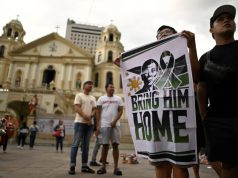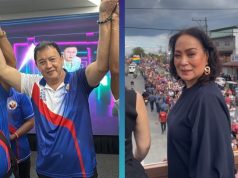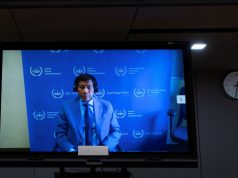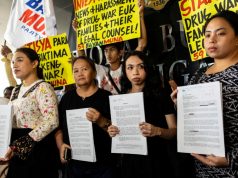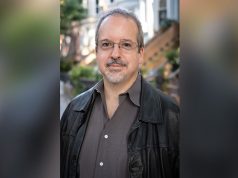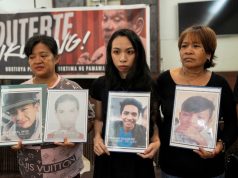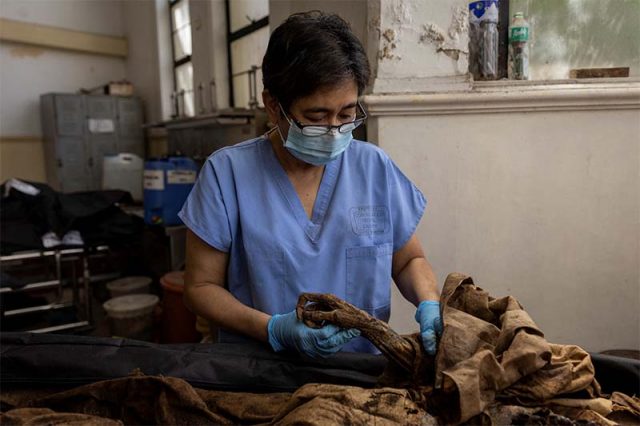
Forensic pathologist Raquel Fortun expressed hopes for victims of the extrajudicial killings during the previous administration to attain justice this 2024.
“Manifesting for my (skull face emoji) cases. There will be justice in 2024 for at least some of them,” the forensic expert posted on her X (formerly Twitter) account on Sunday. It was concluded by a folded hands emoji.
Fortun also tagged the account of the International Criminal Court (ICC), which investigates and tries individuals charged with the gravest crimes of concern to the international community such as genocide, war crimes, crimes against humanity and crimes of aggression.
READ: The role and effectiveness of the International Criminal Court | Factbox: What is the International Criminal Court?
Her post has earned 1,100 likes and several supportive comments so far.
Manifesting for my 💀 cases. There will be justice in 2024 for at least some of them. 🙏🏻@IntlCrimCourt
— Raquel Fortun (@Doc4Dead) December 31, 2023
Some of the reactions include:
“AMEN, DOC! I was with you during our Ozamiz Exhumation,” an online user commented on her post.
“Oh, there will be! Sana nga po lawakan nila ‘yung imbestigasyon and isama ang mga pamilya na tinakot at pinapirma sa waiver,” another Pinoy wrote.
“Amen to this po,” commented a different user with a folded hands emoji.
Fortun, one of the only two forensic pathologists in the country, is helping families and relatives of extrajudicial killings by examining the exhumed remains of some of the poorest drug war victims with consent to document how they died.
‘War on Drugs’ campaign
The “War on Drugs” is former president Rodrigo Duterte‘s violent campaign against illegal drugs that left an estimated number of 12,000 to 30,000 people dead between July 2016 and March 2019, according to the ICC.
The government, however, only acknowledged around 6,248 deaths from the anti-narcotics initiative.
A human rights group said the bloody campaign included the killings of at least 122 children who they said died as direct targets, killed as proxies, as a result of mistakes and as “collateral damage.”
For years, the ICC has received complaints and testimonies from individuals and groups calling for Duterte’s indictment for thousands of drug war killings.
His administration has withdrawn the Philippines from the court’s foundational treaty, the Rome Statute, but it may still investigate the alleged “crimes against humanity of murder” in the Southeast Asian country as it occurred when Manila was still a party to the statute.
Also included in the ICC’s investigation are the Davao Death Squad (DDS) killings between Nov. 1, 2011 and June 30, 2016, when Duterte was either mayor or vice mayor of the city.
ALSO READ: THE WAR ON DRUGS: In-depth reports and analyses on the government’s bloody anti-narcotics campaign
Last year, Reuters shadowed Fortun and learned that official death certificates of at least 15 drug war victims did not reflect the violent manner in which police and family members said they died.
The death certificates said the deceased had succumbed to natural causes such as pneumonia or hypertension instead of saying they were shot.
Fortun shared that she has found gunshot wounds, fractures and bullets in nearly four dozen sets of remains she has examined so far — trauma that often isn’t reflected in the death certificates.
She chairs the pathology department at the College of Medicine at the University of the Philippines-Manila and has spent decades consulting on some of the country’s biggest criminal cases.
RELATED: A pathologist, a priest and a hunt for justice in the Philippines | Fortun visited by police after findings on deaths of Jemboy Baltazar, Kian delos Santos




